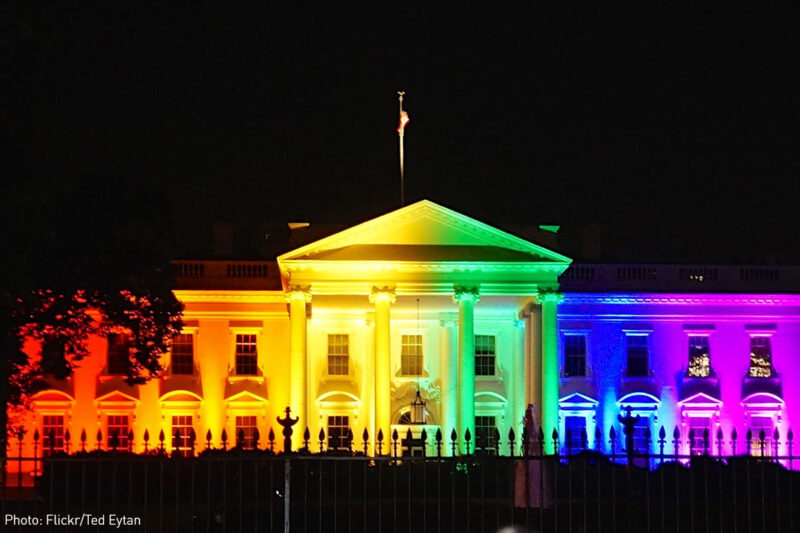
With less than a year left in his presidency, Barack Obama and his administration are taking steps to cement his legacy in key areas. Without question, one of the most consequential has been on LGBT equality. President Obama and his administration have done more in the last seven years to advance LGBT rights than all previous presidents combined.
Having already accomplished so much, what work remains? Simple: The government should treat discrimination against lesbians, gay men, and bisexual people as sex discrimination because it is sex discrimination.
Last week, the Los Angeles Times for the administration to make it clear that existing protections against sex discrimination also prohibit discrimination based on sexual orientation. According to the editorial board:
Generations ago, it would have seemed obvious that “sex discrimination” referred only to treating male employees or job applicants better than female ones (or vice versa). But discrimination against women and discrimination against gays and lesbians (and transgender people) all are rooted in stereotypes about “proper” expressions of gender and sexuality.
We couldn’t agree more. In a letter to Attorney General Loretta Lynch last June, the the Justice Department to announce that it would take this position in the context of Title VII of the Civil Rights Act, which prohibits sex discrimination in employment. As we made clear in our letter to Attorney General Lynch, this position is fully supported by important legal developments, and it would be one of the most significant actions that the administration could take to advance the equal treatment of LGBT people. It’s also supported by what announced with respect to anti-trans discrimination. Essentially, this position would offer legal backing for LGBT individuals who are discriminated against where statewide laws fail to protect them.
Prior to stepping down as attorney general, Eric Holder made clear — in a memorandum to U.S. attorneys across the country — that the Justice Department would take the position that anti-trans employment discrimination was a violation of Title VII. Attorney General Lynch should now expand this understanding to include discrimination against lesbians, gay men, and bisexual people as well.
In July, the U.S. Equal Employment Opportunity Commission, in a landmark ruling, held that employment discrimination based on sexual orientation is a form of sex discrimination and a violation of the law. This ruling provides an even stronger rationale for the administration to act.
Additionally, the administration is preparing to issue a final rule that will implement the nondiscrimination provision in the Affordable Care Act. One of the key pieces that the ACLU will review closely is whether sexual orientation-based discrimination is defined as a form of sex discrimination within the rule. The ACLU, in comments to the U.S. Department of Health and Human Services last year, urged the government to do exactly this.
None of these important steps eliminate or diminish the importance of or need for clear, explicit nondiscrimination protections. The ACLU strongly supports the Equality Act and will continue to work for its eventual passage in Congress. We will also continue our work to secure statewide nondiscrimination protections in the two-thirds of the country where none currently exist. However, LGBT people who experience discrimination because of who they are can’t wait. It’s critically important to do all that can be done using existing laws to protect people from discrimination.
The Obama administration has a historic opportunity this year to build on a proud legacy by making clear that discrimination against lesbians, gay men, and bisexual people — just as is true for trans people — is a violation of the law.

